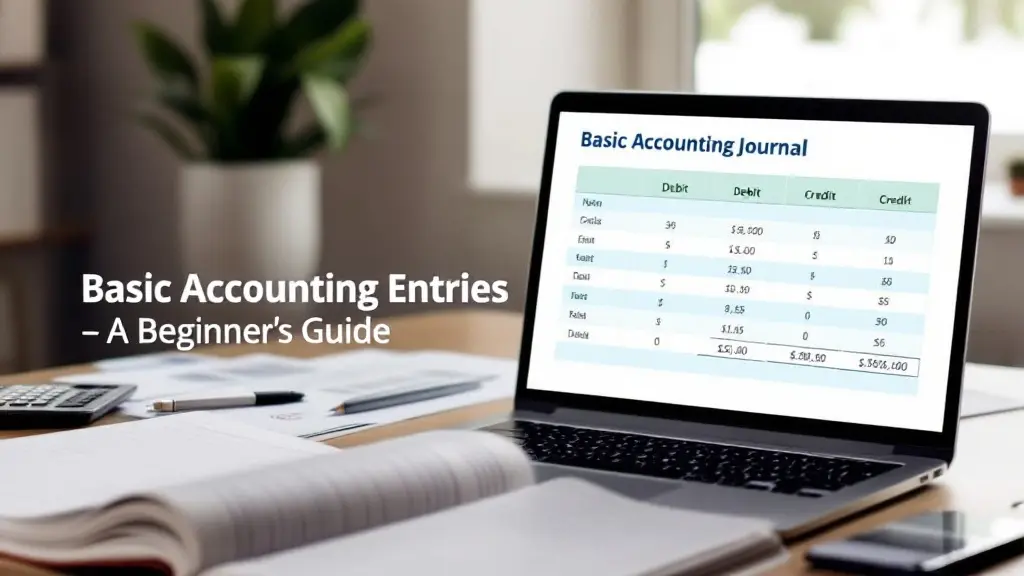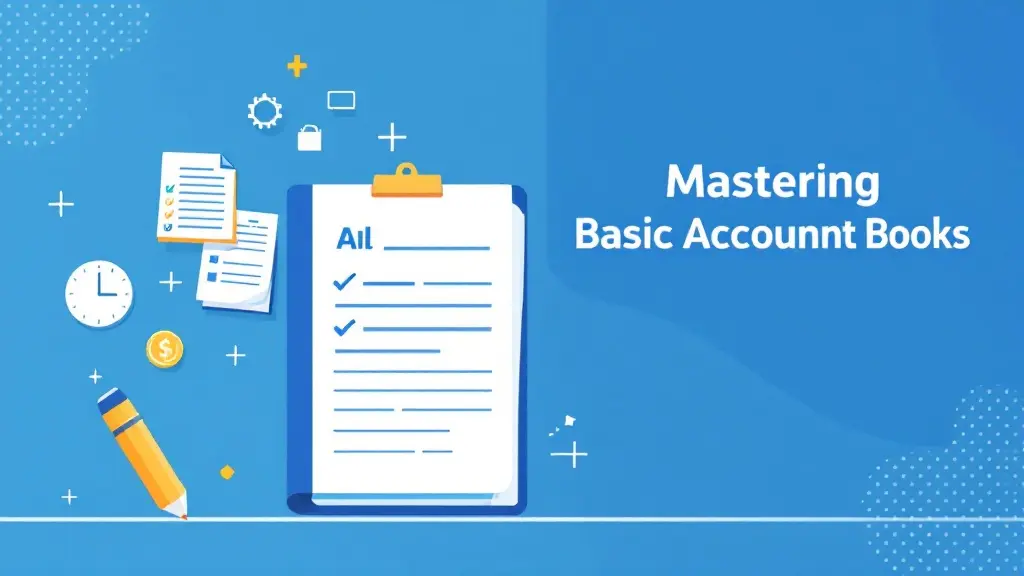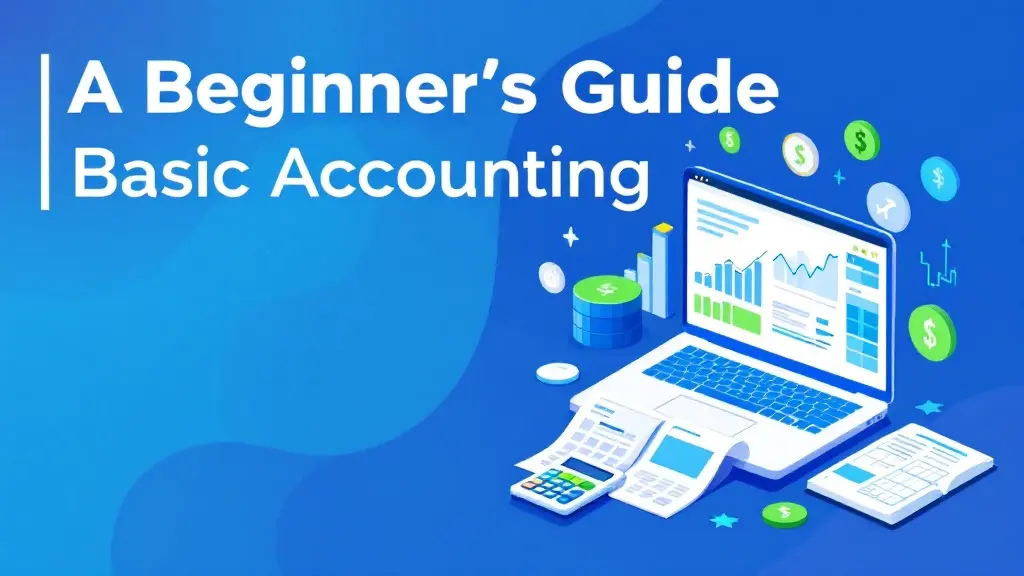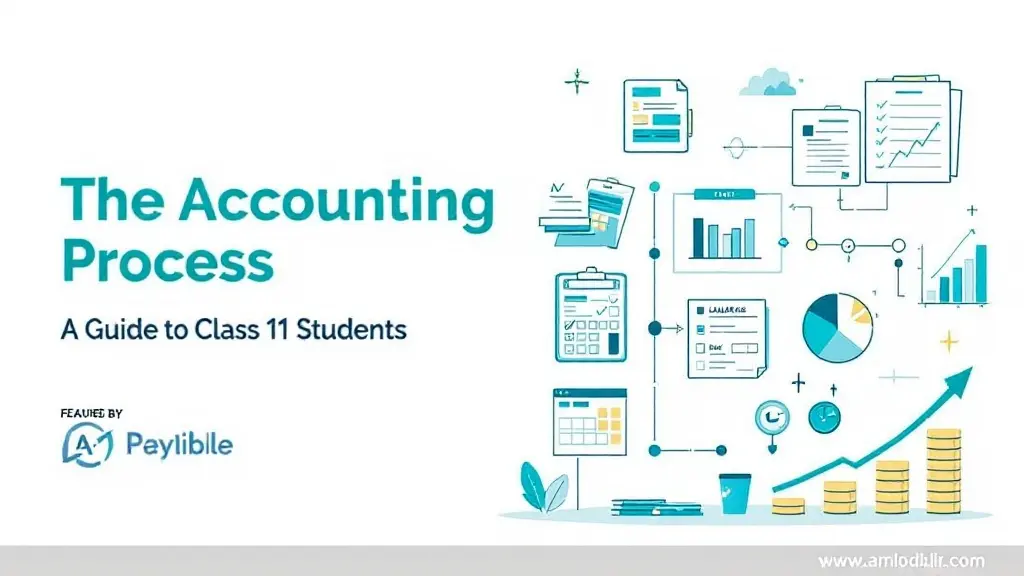Basic Accounting: Understanding the Essentials for Beginners
Table of Contents
Most Read
[fusion_dropcap class="fusion-content-tb-dropcap"]A[/fusion_dropcap]ccounting is the backbone of every business, helping entrepreneurs, investors, and professionals keep track of finances and make informed decisions. Whether you’re a small business owner, a student, or someone looking to understand financial management better, knowing the basics of accounting is crucial.
In this post, we’ll explore the meaning of basic accounting, its key concepts, and why it’s vital for business success. By the end, you’ll have a solid understanding of how accounting works and how you can apply it to your own financial practices.
What is Basic Accounting?
Basic accounting is the process of recording, classifying, and summarizing financial transactions. It is a method used to track a company’s financial health and provide clear, accurate records for decision-making. Think of accounting as the language of business, providing a structure for understanding a company’s financial performance.
In its simplest form, accounting helps answer key questions like:
- How much money is the business making or losing?
- What is the company’s financial position at any given point in time?
- How are expenses and revenues impacting profitability?
At its core, accounting is divided into two main components:
- Financial Accounting – This focuses on the creation of financial statements that summarize the performance and position of a business.
- Management Accounting – This involves the preparation of detailed reports for internal use, helping management make strategic decisions.
Why is Basic Accounting Important?
Understanding basic accounting is crucial for a number of reasons:
- Better Decision-Making: With clear financial records, business owners can make informed decisions about operations, investments, and expansion.
- Tax Compliance: Accurate accounting ensures that businesses comply with tax regulations, helping them avoid penalties and fines.
- Financial Planning: A proper accounting system enables businesses to plan for the future by forecasting cash flows, profits, and financial needs.
- Attract Investors: Investors rely heavily on financial statements to assess the health and profitability of a company before investing.
Key Accounting Concepts You Should Know
To understand basic accounting, it’s essential to familiarize yourself with some key terms and concepts. Here are some of the most important ones:
1. Assets
Assets are anything of value that a business owns. They are divided into two categories:
- Current Assets: Cash or items expected to be converted into cash within one year, such as inventory or accounts receivable.
- Non-Current Assets: Long-term investments like property, equipment, and intangible assets like patents.
2. Liabilities
Liabilities represent what a business owes to others. Like assets, liabilities are divided into:
- Current Liabilities: Debts that must be paid within one year, such as accounts payable or short-term loans.
- Non-Current Liabilities: Long-term obligations, like mortgages or long-term loans.
3. Equity
Equity refers to the owner’s share of the business, calculated as the difference between the business’s assets and liabilities. It’s essentially the net worth of the company. In a sole proprietorship, it’s called owner’s equity, while in corporations, it’s referred to as shareholders’ equity.
4. Revenue and Expenses
Revenue is the income generated from normal business activities, such as sales or service fees. On the other hand, expenses are the costs incurred to operate the business, such as rent, salaries, and utility bills. The difference between revenue and expenses is known as profit or net income.
5. Double-Entry System
One of the fundamental principles of accounting is the double-entry system, which means every transaction has two effects: one on the debit side and one on the credit side. This system ensures that the accounting equation (Assets = Liabilities + Equity) stays in balance.
6. Accounting Equation
The accounting equation forms the foundation of double-entry accounting. It states that:
- Assets = Liabilities + Owner’s Equity This equation must always remain balanced, ensuring the company’s books are accurate.
The Three Main Financial Statements
In accounting, financial statements are the primary tools used to assess a business’s financial performance. There are three key financial statements you should be familiar with:
1. Balance Sheet
A balance sheet provides a snapshot of a company’s financial position at a specific point in time. It lists the company’s assets, liabilities, and equity, following the accounting equation.
- Assets are listed on the left side, categorized as current and non-current.
- Liabilities and Equity are listed on the right side.
A balance sheet helps determine whether a company is solvent and able to meet its long-term obligations.
2. Income Statement
The income statement, also known as the profit and loss statement, shows a company’s profitability over a specific period. It lists revenue and expenses to calculate net profit or loss.
Key components of an income statement include:
- Revenue: Total income from business operations.
- Cost of Goods Sold (COGS): The direct costs of producing goods sold by the business.
- Gross Profit: Revenue minus COGS.
- Operating Expenses: Costs like rent, utilities, and salaries.
- Net Income: The final profit or loss after all expenses are deducted from revenue.
3. Cash Flow Statement
The cash flow statement tracks the inflow and outflow of cash in a business. It is divided into three sections:
- Operating Activities: Cash generated or spent from business operations.
- Investing Activities: Cash used for investments or earned from the sale of investments.
- Financing Activities: Cash received or paid from borrowing or repaying debts, or issuing shares.
The cash flow statement helps businesses understand how cash moves in and out of the company, ensuring there’s enough liquidity to meet financial obligations.
How Basic Accounting Helps Small Business Owners
For small business owners, basic accounting serves as a roadmap for financial decision-making. Here’s how it can help:
1. Managing Cash Flow
Understanding your inflow and outflow of cash is crucial for managing day-to-day operations. Basic accounting can help business owners predict and plan for upcoming expenses.
2. Tracking Profits
By regularly reviewing financial statements, you can easily track your profits. This allows you to spot trends, make adjustments, and set financial goals.
3. Monitoring Tax Obligations
With the right accounting practices, small businesses can keep track of their tax obligations and ensure compliance with tax laws. This also helps in claiming eligible tax deductions.
4. Accessing Funding
If you’re looking to expand your business or take out a loan, lenders will want to see your financial statements. A clear accounting system makes it easier to provide accurate and professional financial documents when needed.
How to Get Started with Basic Accounting
If you’re new to accounting, getting started may seem overwhelming, but it doesn’t have to be. Here are some steps to help you dive in:
- Set Up Your Accounting System Choose an accounting method, such as cash basis or accrual basis, depending on your business needs. You can also use accounting software like QuickBooks or Xero to streamline the process.
- Track Your Expenses and Income Keep a record of all transactions, including sales, expenses, and payments. Consistency is key to maintaining accurate financial records.
- Prepare Financial Statements Regularly Make it a habit to review your balance sheet, income statement, and cash flow statement monthly or quarterly.
- Hire a Professional if Needed If you find accounting too complex, consider hiring an accountant or bookkeeper to manage your finances.
Final Thoughts
Basic accounting doesn’t have to be intimidating. By understanding the essential principles and taking control of your financial records, you can ensure the long-term success of your business. Whether you’re running a startup or managing personal finances, accounting is an invaluable tool for keeping your financial life organized and on track.
Incorporate these basic accounting practices into your routine, and you’ll soon see the benefits of clear, organized financial management. Remember, knowledge is power, and understanding the language of business will open doors to better opportunities, improved financial planning, and a more profitable future.
Visit Our Website : Accounting24.in









